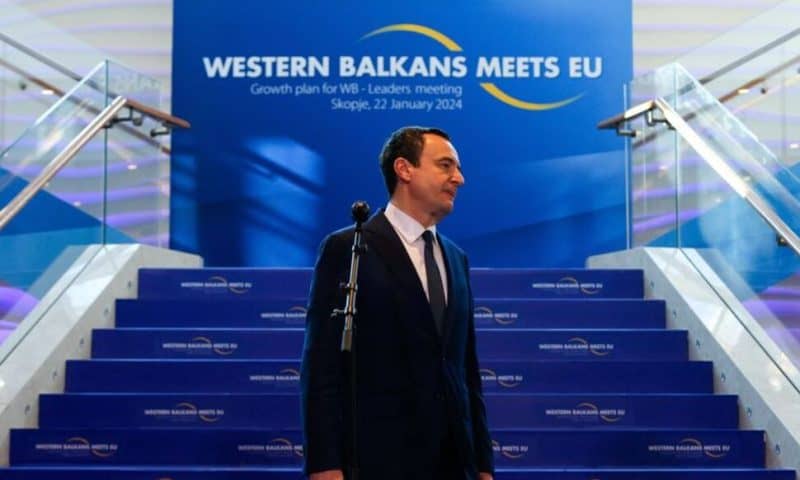SKOPJE – The European Union’s 6-billion euro growth plan for the Western Balkans is a potential “game changer” that could double the size of regional economies in the next decade, an EU official said on Monday.
Leaders of the six Western Balkan countries — Albania, Bosnia, Kosovo, Montenegro, North Macedonia and Serbia — met on Monday in Skopje to discuss reforms needed to access the EU growth plan presented last October.
The EU’s aim is to give greater stability to a region that emerged from the bloody 1990s break-up of Yugoslavia but is still racked by tensions.
“The growth plan is a potential a game changer and could double the size of your economies in the next decade,” said Gert Jan Koopman, the European Commission’s Director-General for Neighbourhood and Enlargement Negotiations.
The EU growth plan for the region would include the opening of its common market to the Western Balkan countries in areas such as free movement of goods and services, transport and energy.
But in return, the countries need to implement reforms and resolve all outstanding issues with their neighbours.
“The growth plan means 6 billion euros for the whole region and the amount of the money we will get depends on the good works that we do,” Kosovo Prime Minister Albin Kurti said ahead of the meeting.
Having been promised EU membership years ago, the accession process across the region has slowed to a crawl, mainly due to reluctance among the bloc’s 27 members and a lack of reform throughout the region.
Serbia and Montenegro were the first in the region to launch EU membership talks, and Albania and North Macedonia began talks with Brussels in 2022. Bosnia and Kosovo lag far behind their neighbours in the process.
Representatives of financial institutions including the European Investment Bank and the European Bank for Reconstruction and Development also attended the meeting in Skopje.
U.S. Assistant Secretary of State for European and Eurasian Affairs, James O’Brien, said procedures to enable lower fees for money exchange and access to faster customs procedures for trucks transporting goods from the Western Balkans into the EU were discussed.
“We will see results some time this year,” he said after the meeting.

